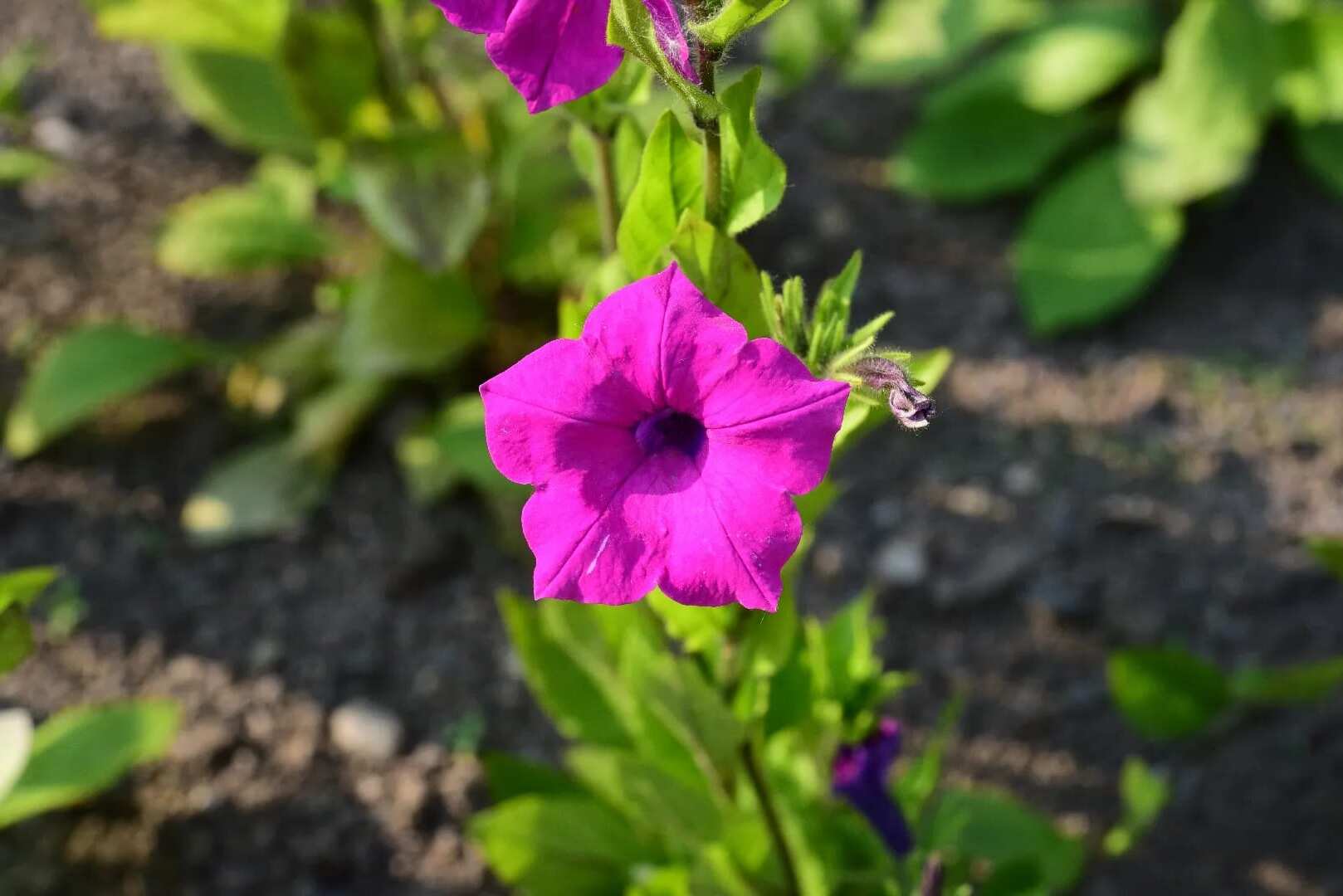
Petunia integrifolia, also known as the wild petunia, is a charming plant that adds a splash of color to gardens. But what makes this flower so special? Petunia integrifolia is not just another pretty face in the botanical world. This resilient plant thrives in various conditions, making it a favorite among gardeners. Its vibrant purple blooms attract pollinators like bees and butterflies, contributing to a healthy ecosystem. Moreover, Petunia integrifolia is easy to care for, requiring minimal maintenance. Whether you're a seasoned gardener or a beginner, this plant is a delightful addition to any garden. Ready to learn more? Let's dive into 23 fascinating facts about Petunia integrifolia!
What is Petunia Integrifolia?
Petunia integrifolia, also known as the wild petunia, is a charming flowering plant native to South America. It belongs to the Solanaceae family, which includes other well-known plants like tomatoes and potatoes. Let's dive into some fascinating facts about this vibrant plant.
-
Native Habitat: Petunia integrifolia is originally from Argentina, Brazil, and Uruguay. It thrives in warm climates and can often be found in open fields and along roadsides.
-
Flower Color: The flowers of Petunia integrifolia are typically a striking purple or violet. This vibrant color attracts various pollinators, including bees and butterflies.
-
Growth Habit: This plant has a sprawling growth habit, making it an excellent ground cover. It can spread up to 2 feet wide, creating a beautiful carpet of flowers.
-
Blooming Season: Petunia integrifolia blooms from late spring to early fall. During this period, it produces an abundance of flowers, adding a splash of color to gardens.
-
Sunlight Requirements: This plant loves the sun. It thrives in full sunlight, requiring at least six hours of direct sunlight each day to produce its best blooms.
-
Soil Preferences: Petunia integrifolia prefers well-drained soil. It can tolerate a range of soil types, from sandy to loamy, as long as the soil is not waterlogged.
Unique Characteristics of Petunia Integrifolia
Beyond its basic growing needs, Petunia integrifolia has some unique characteristics that set it apart from other petunias. Here are a few intriguing details.
-
Drought Tolerance: This plant is quite drought-tolerant once established. It can survive periods of dry weather, making it a low-maintenance choice for gardeners.
-
Fragrance: Unlike many other petunias, Petunia integrifolia has a subtle, pleasant fragrance. This makes it a delightful addition to any garden.
-
Wild Relatives: Petunia integrifolia is closely related to other wild petunias. These wild relatives are often used in breeding programs to develop new petunia varieties.
-
Pollinator Friendly: The flowers are highly attractive to pollinators. Bees, butterflies, and even hummingbirds are frequent visitors, helping to ensure the plant's reproduction.
-
Resilience: This plant is quite resilient. It can withstand some neglect and still thrive, making it a good choice for novice gardeners.
Uses and Benefits of Petunia Integrifolia
Petunia integrifolia is not just a pretty face. It offers several benefits and uses in gardening and beyond.
-
Ground Cover: Its sprawling growth habit makes it an excellent ground cover. It can help prevent soil erosion and suppress weeds.
-
Container Gardening: This plant is well-suited for container gardening. It can be grown in pots and hanging baskets, adding color to patios and balconies.
-
Companion Planting: Petunia integrifolia can be used in companion planting. It pairs well with other sun-loving plants, creating a diverse and attractive garden.
-
Wildlife Habitat: By attracting pollinators, this plant helps support local wildlife. It provides food for bees, butterflies, and other beneficial insects.
-
Aesthetic Appeal: The vibrant flowers and lush foliage of Petunia integrifolia add aesthetic appeal to any garden. It can be used in borders, rock gardens, and as a focal point in flower beds.
Growing and Caring for Petunia Integrifolia
To get the best out of Petunia integrifolia, it's important to know how to grow and care for it properly. Here are some tips.
-
Watering: While drought-tolerant, regular watering during dry spells will keep the plant looking its best. Water deeply but infrequently to encourage deep root growth.
-
Fertilizing: A balanced, slow-release fertilizer applied in the spring can help promote healthy growth and abundant blooms. Avoid over-fertilizing, as this can lead to excessive foliage at the expense of flowers.
-
Pruning: Pruning is not usually necessary, but occasional trimming can help maintain a tidy appearance. Remove spent flowers to encourage continuous blooming.
-
Pest Control: Petunia integrifolia is relatively pest-resistant. However, keep an eye out for common garden pests like aphids and caterpillars. Use organic pest control methods if needed.
-
Propagation: This plant can be propagated from seeds or cuttings. Seeds should be sown in early spring, while cuttings can be taken in late spring or early summer.
-
Winter Care: In colder climates, Petunia integrifolia can be grown as an annual. Alternatively, it can be brought indoors or protected with mulch to survive the winter.
-
Disease Resistance: Petunia integrifolia is generally disease-resistant. Proper spacing and good air circulation can help prevent fungal diseases.
Petunia integrifolia is a versatile and resilient plant that can add beauty and color to any garden. Whether you're a seasoned gardener or just starting out, this plant is a fantastic choice.
Petunia Integrifolia: A Garden Gem
Petunia integrifolia, with its vibrant blooms and hardy nature, stands out as a favorite among gardeners. This plant, native to South America, thrives in various climates, making it a versatile addition to any garden. Its ability to attract pollinators like bees and butterflies adds ecological value, while its low-maintenance needs make it perfect for both novice and experienced gardeners.
Beyond its beauty, petunia integrifolia offers practical benefits. Its compact growth habit makes it ideal for borders, containers, and hanging baskets. Plus, its resistance to common pests and diseases means fewer headaches for gardeners.
Incorporating petunia integrifolia into your garden not only enhances aesthetic appeal but also supports local wildlife. Whether you're looking to brighten up a space or create a pollinator-friendly environment, this plant is a stellar choice. Happy gardening!
Was this page helpful?
Our commitment to delivering trustworthy and engaging content is at the heart of what we do. Each fact on our site is contributed by real users like you, bringing a wealth of diverse insights and information. To ensure the highest standards of accuracy and reliability, our dedicated editors meticulously review each submission. This process guarantees that the facts we share are not only fascinating but also credible. Trust in our commitment to quality and authenticity as you explore and learn with us.


